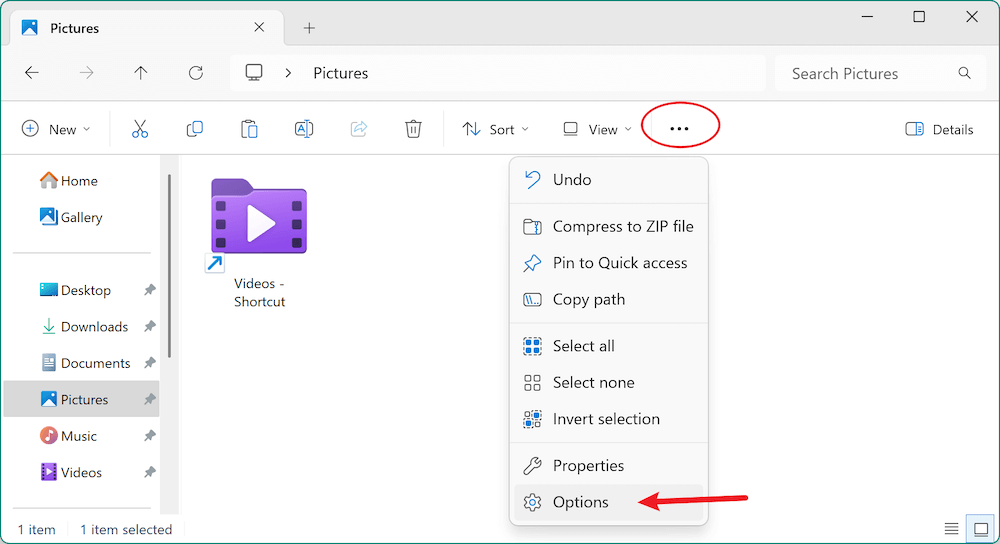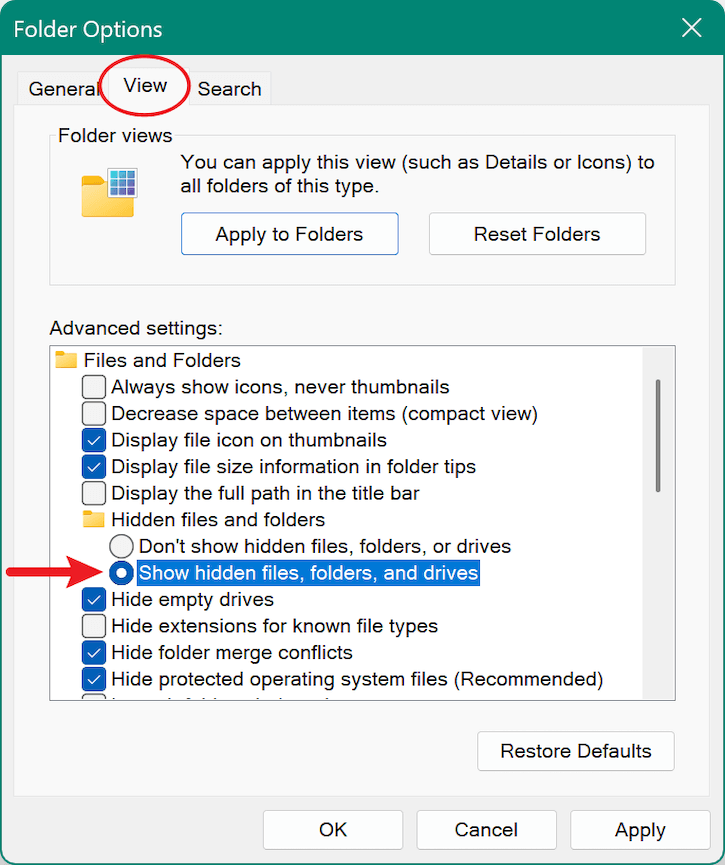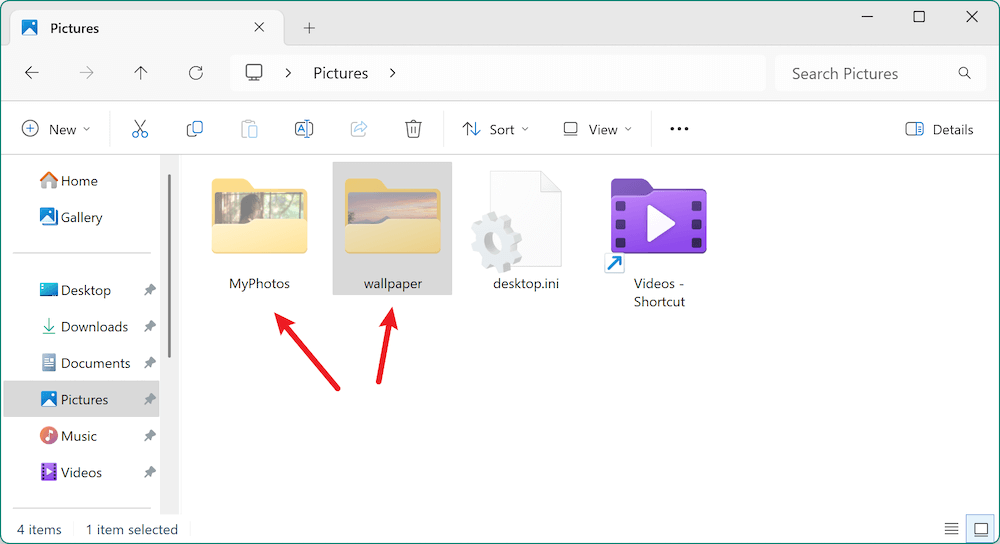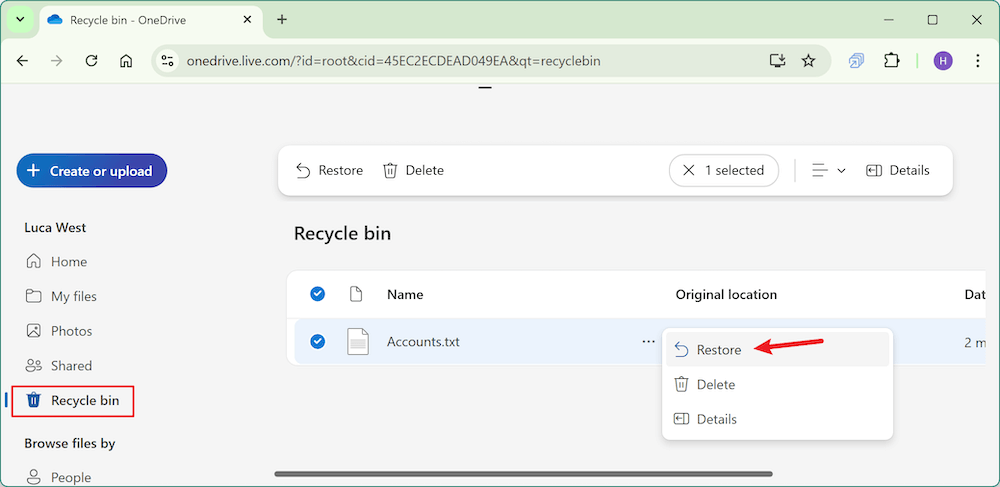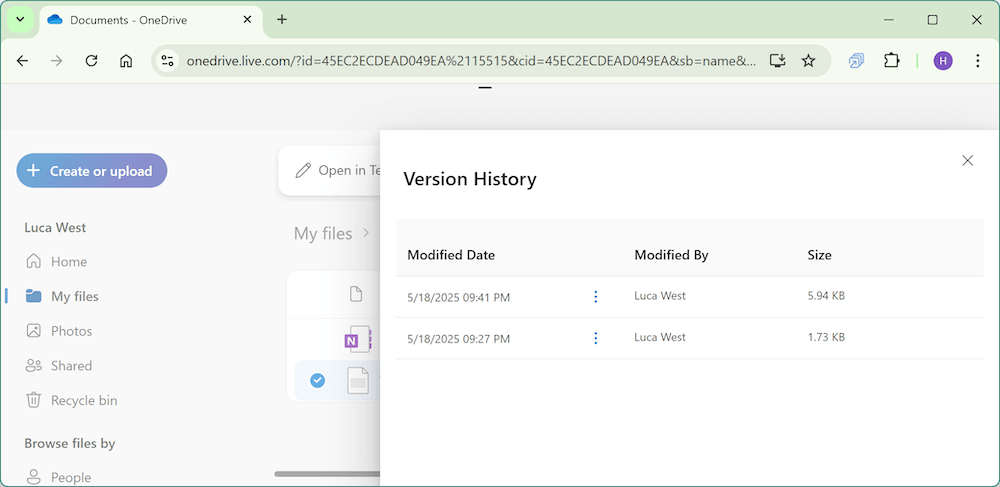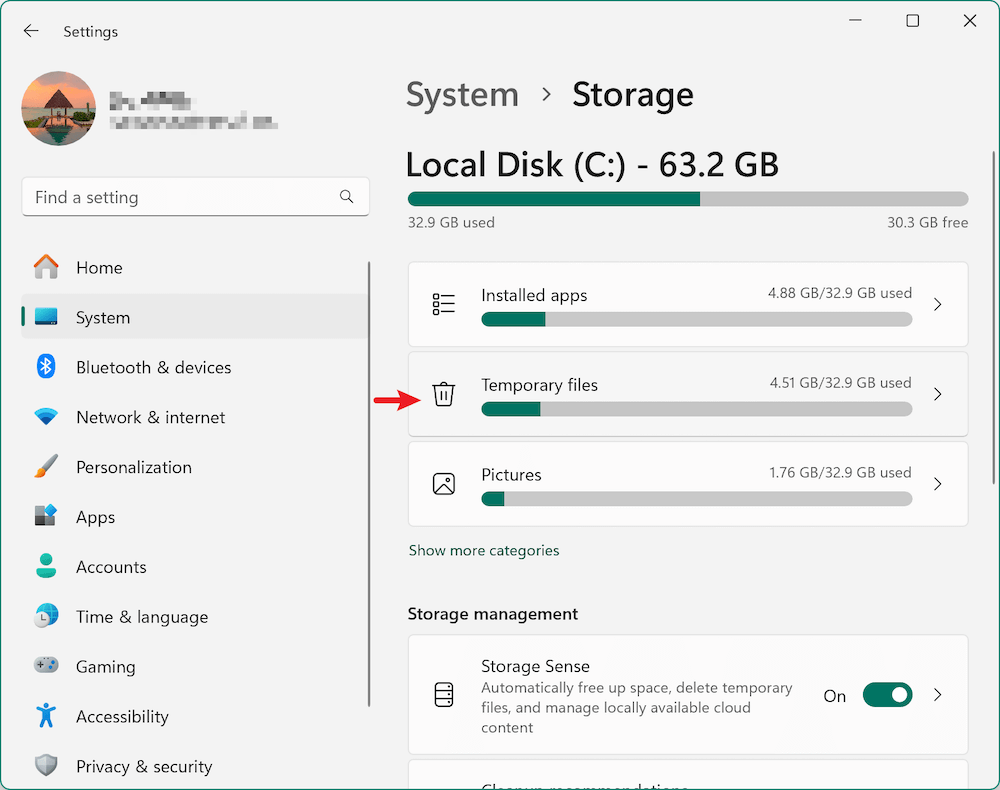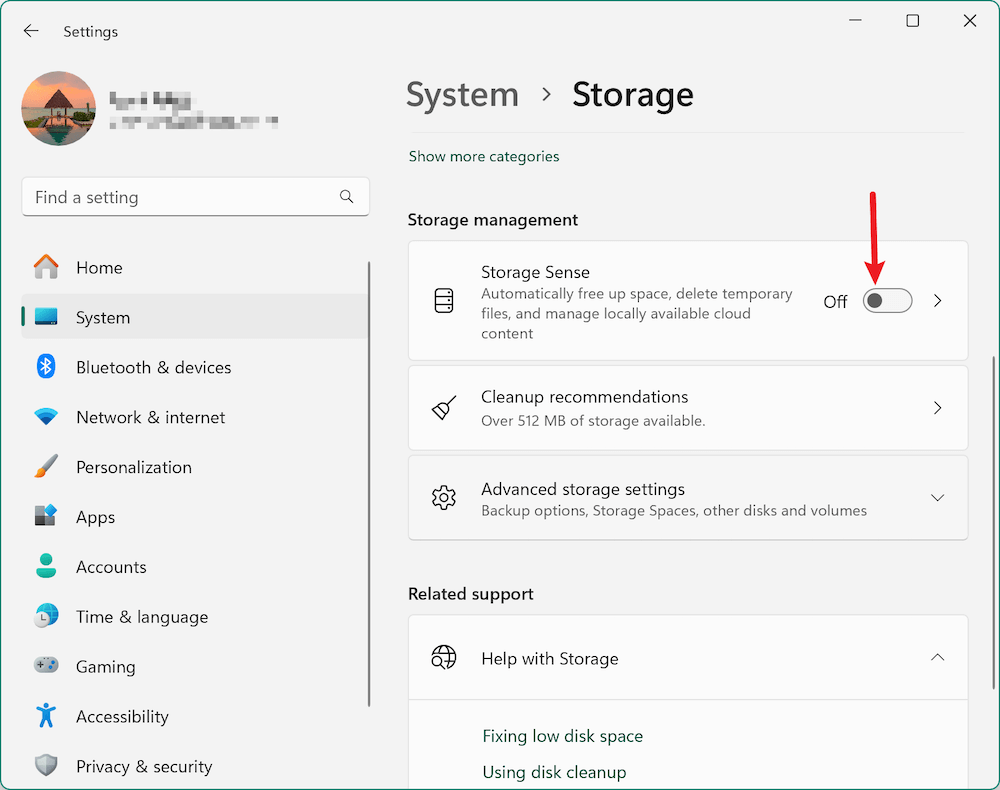Before we start: When you find the files are missing or disappeared on Windows 10, the files might be hidden or move to another place mistakenly. Check the hidden files, Recycle Bin, or other folders first. Otherwise, try to restore the files from backups or recover with data recovery software.
PAGE CONTENT:
- Common Reasons Why Files Disappear on Windows 10
- Preliminary Checks Before Recovering Disappeared Files on Windows 10
- Methods to Find and Recover Disappeared Files on Windows 10
- Advanced Recovery Solutions for Disappeared Files on Windows 10
- Tips to Prevent Files from Disappearing on windows 10 in the Future
- Conclusion
Losing files unexpectedly on your Windows 10 computer can be frustrating and stressful—especially if those files were important documents, cherished photos, or critical project data. Whether the disappearance happens after a system update, a crash, or seemingly out of nowhere, understanding the reasons behind the issue and the available recovery options can make a huge difference.
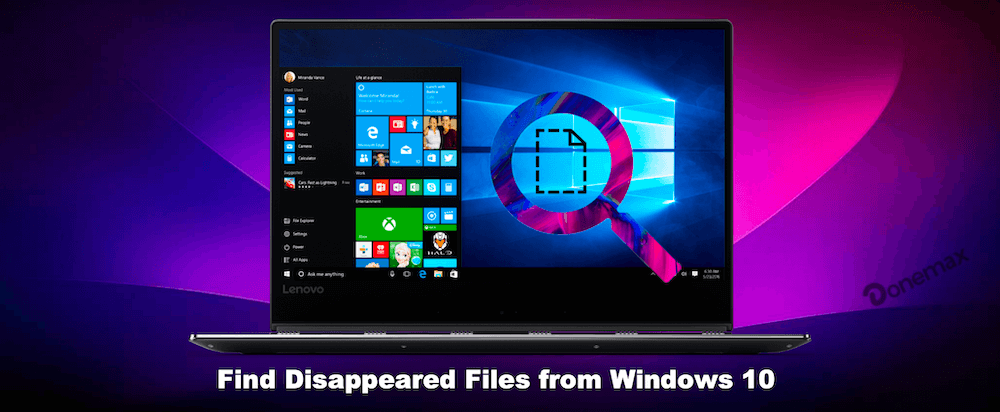
In this article, we'll explore the common causes of missing files on Windows 10 and provide you with comprehensive methods to find and recover them.
Common Reasons Why Files Disappear on Windows 10
Prior moving into recovery methods, it's essential to understand why files might disappear. Here are the most frequent causes:
🗑️ Unintentional Deletion: Users may unintentionally delete files by pressing the wrong keys or clearing folders too quickly. Fortunately, these files often go to the Recycle Bin first.
🫥 Hidden Files or Folders: Windows sometimes hides system or protected files. Your missing files might still exist, but they're simply hidden from view.
📂 Files Moved or Renamed: Files can be accidentally dragged into different folders, or their names may be changed, making them difficult to locate with a basic search.
⬆️ Windows Updates: Major Windows 10 updates can reset settings or even create a new temporary user profile, making your original files seem to vanish.
🚫 Corrupted User Profile: If your original profile gets corrupted, Windows might log you into a temporary account with none of your files or preferences.
☠ Malware or Virus Activity: Malicious software can delete, hide, or encrypt files as part of its attack. This is especially dangerous if you don't have regular backups.
😖 Disk Errors or File System Corruption: Corruption of the file system or bad sectors on your hard drive can make files inaccessible or seemingly disappear.
Preliminary Checks Before Recovering Disappeared Files on Windows 10
Start with the following basic checks before attempting advanced recovery:
1. Restart the Computer
Sometimes, a simple reboot resolves temporary glitches or profile-loading errors that make files disappear.
2. Check All User Accounts
If Windows has logged you into a temporary profile, your files may still be accessible under your original user account.
- Navigate to C:\Users and look for folders with your original username.
- Log out and log back in with the correct user.
3. Use Windows Search
Use the search bar on the taskbar to find files:
- Search by keyword, file type (e.g., .docx, .jpg), or date modified.
- Use filters to narrow results.
4. Check Common Folders
Sometimes files are moved or dragged into another folder by accidentally, so you can also check the adjacent folders and the following folders:
- Downloads
- Documents
- Desktop
- Pictures
Make sure you've looked in these folders thoroughly.
Methods to Find and Recover Disappeared Files on Windows 10
Once you've done the basic checks, here are more detailed methods to locate or restore missing files:
Method 1. Check the Recycle Bin
One of the first places to check:
- On the desktop, double-click the Recycle Bin icon.
- Browse through the list or use the search box to locate your files.
- Choose Restore from the menu when you right-click on any file you wish to recover.
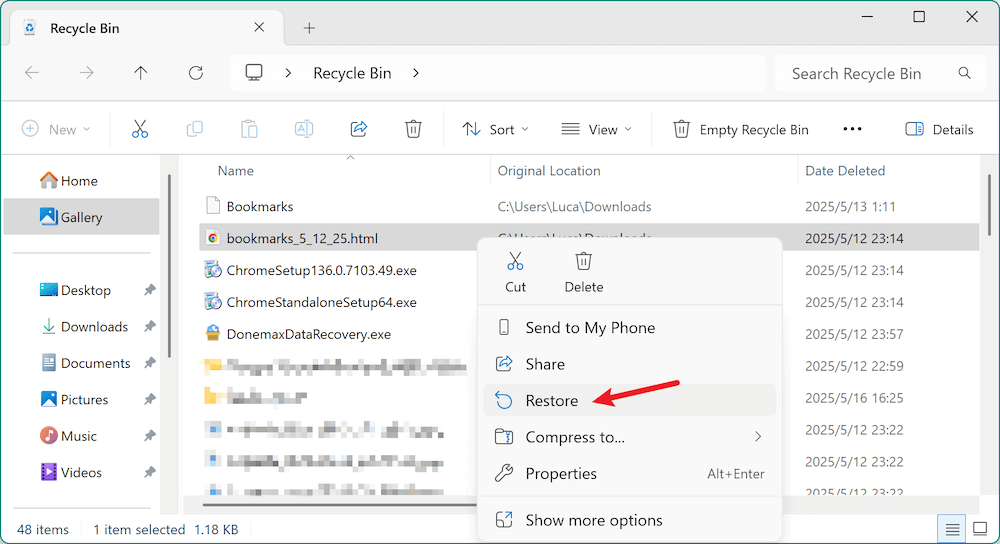
Method 2. Use File History (If Enabled)
Windows 10 has a built-in backup tool called File History.
- Go to the folder where you lost files. Right-click the folder and select Properties option from the menu.
- Change to Previous Versions tab. Then select a previous version for the folder and click Restore button.
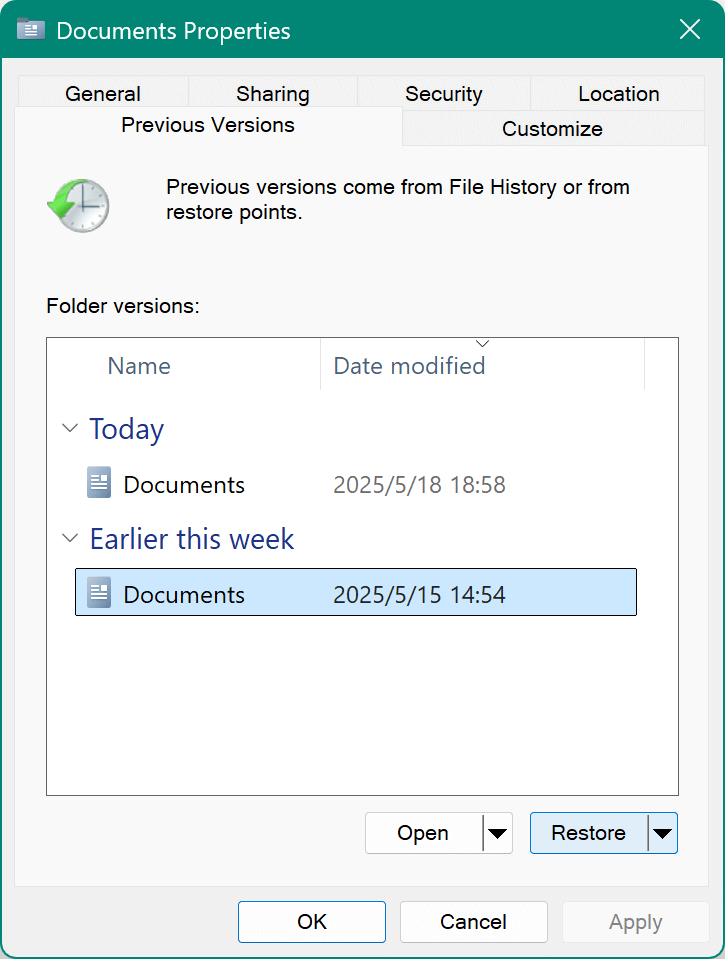
Method 3. Enable and View Hidden Files
To reveal hidden files:
- Open File Explorer. Locate the folder where the files are disappeared. Click the button with three dots (···) and choose Options from the menu.
![recover disappeared files on windows 10]()
- Click on the View tab. Enable the option Show hidden files, folders, and drives under Hidden files and folders.
![recover disappeared files on windows 10]()
- Navigate through folders to see if missing files appear.
![recover disappeared files on windows 10]()
You can also uncheck "Hide protected operating system files (recommended)" (be cautious with this setting).

Method 4. Check the Temp Folder or AppData
Some files may be saved temporarily in the system folders:
- Type %temp% using Windows + R, then hit Enter.
- Look through temporary files for your missing documents.
- You can also check %appdata% for application-specific temporary data.
Method 5. Recover from OneDrive (If Synced)
If you use OneDrive, your files might still be there:
- Open the OneDrive folder in File Explorer or go to onedrive.live.com.
- Check the Recycle Bin in OneDrive for deleted files. If you can find the wanted file, select it and click Restore.
![recover disappeared files on windows 10]()
- Use Version History on files to restore older copies. Select a file and click Version history. Then you can check the modified time and select a previous copy of the file to restore.
![recover disappeared files on windows 10]()
Method 6. Use Command Prompt to Search Entire Drive
The command line allows a more thorough search:
- Press Windows + R, type cmd, hit Enter,
- Type the following command to search for the missing file:
dir C:\filename.ext /s /a
![recover disappeared files on windows 10]()
Replace filename.ext with your file's name or extension.
This searches the entire C drive, including hidden and system files.
Method 7. Check Storage Settings and Storage Sense
Windows 10's Storage Sense can automatically delete unused files:
- Go to Settings > System > Storage.
- Click Temporary files to see if anything was removed.
![recover disappeared files on windows 10]()
- Disable or adjust Storage Sense settings to prevent future deletions.
![recover disappeared files on windows 10]()
Advanced Recovery Solutions for Disappeared Files on Windows 10
If the methods above don't work, these advanced techniques may help.
Solution 1. Use System Restore
If a recent system change caused the issue:
- Press Windows + R, and type rstrui, hit Enter.
- Follow the prompts to restore your system to a point before the files disappeared.
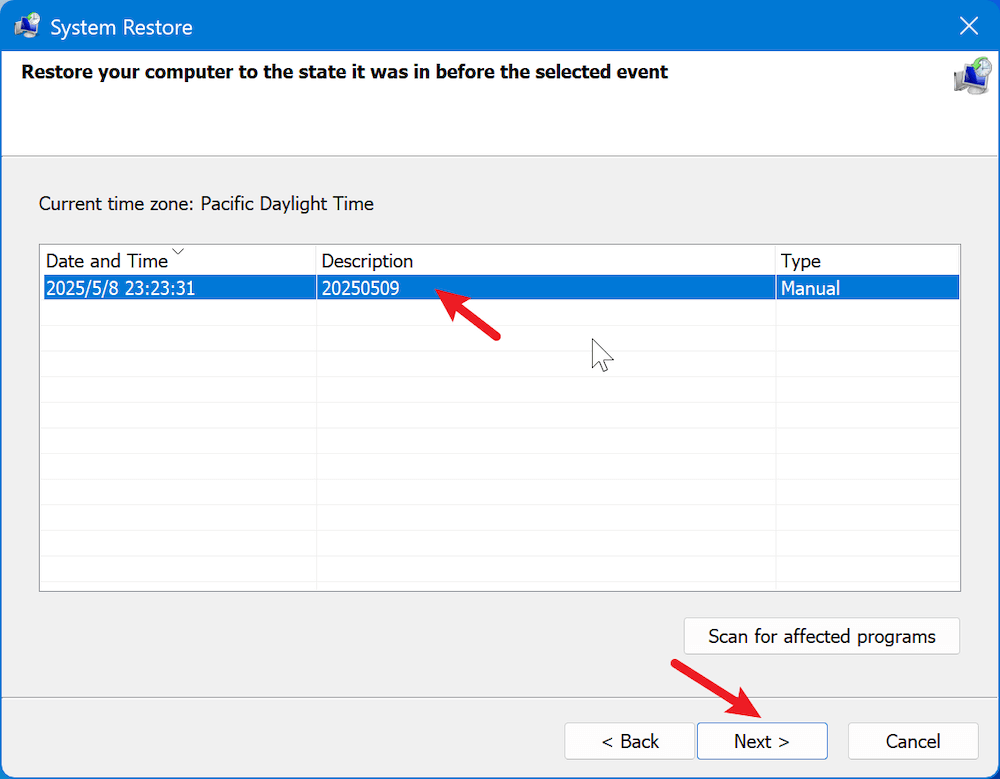
💡 Note: System Restore affects settings and system files, not personal files. However, if the disappearance is due to profile corruption, this may help.
Solution 2. Use a Data Recovery Tool
If files were permanently deleted or lost due to corruption, a data recovery tool can help:
- Pros: Intuitive interface, supports a wide range of file types, allows preview before recovery.
- Best for: Recovering files after formatting, partition loss, or system crashes.
Recuva (by CCleaner)
- Pros: Lightweight, free version available, deep scan feature.
- Best for: Recovering recently deleted files from HDDs, SSDs, memory cards, USB drives.
Disk Drill
- Pros: Clean interface, free recovery up to 500MB (on Windows), supports raw recovery.
- Best for: Beginners and users needing cross-platform support (Windows/macOS).
Stellar Data Recovery
- Pros: Supports recovery from encrypted drives, corrupted media, or crashed systems.
- Best for: Professionals dealing with high-stakes data loss.
Steps to Recover Disappeared or Lost Files with Donemax Data Recovery on Windows 10:
Step 1. Download and install the recovery tool (on a different drive to avoid overwriting data).
Donemax Data Recovery
- Professional data recovery software for Windows 7/8/10/11.
- Fast and effective to recover deleted, formatted, or other lost files.
- Support data recovery for USB drives, Internal drives, memory cards, etc.
Step 2. Run the software and you will see all the connected drives on the computer. Select the drive where files were lost.
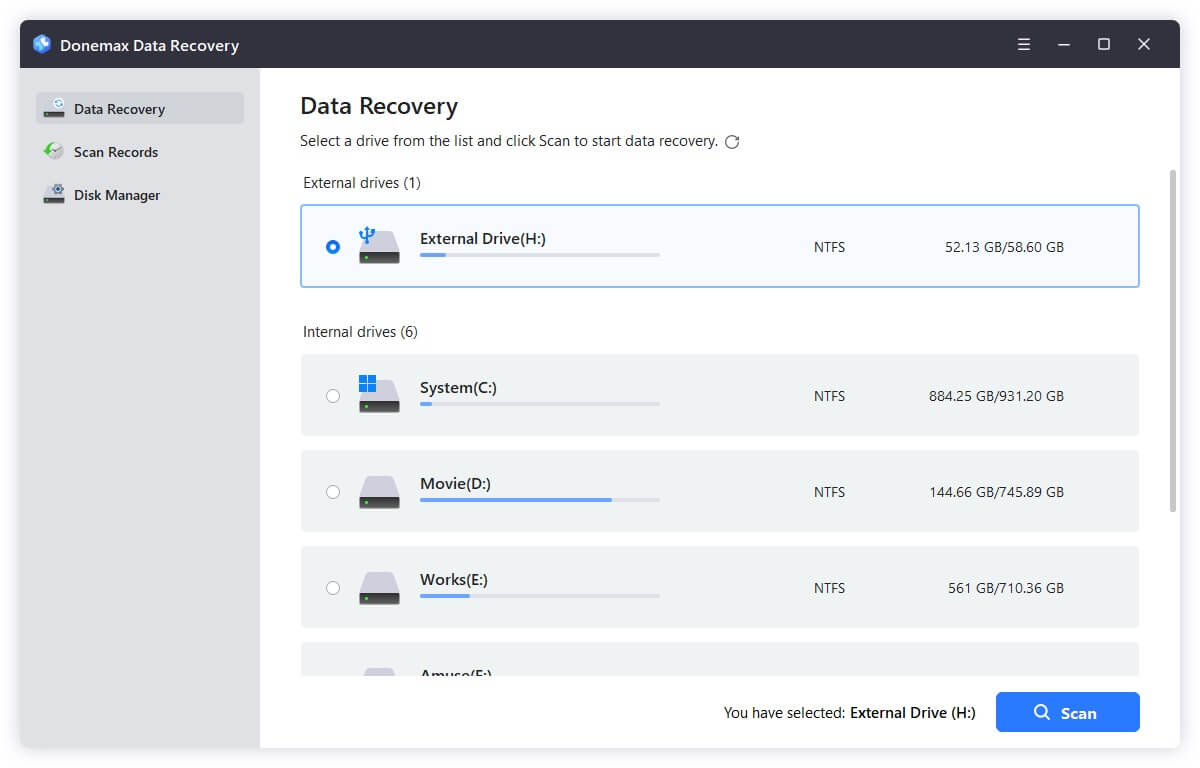
Step 3. Scan for disappeared or missing files. It may take some time depending on the disk size. Just leave it scanning and wait patiently.
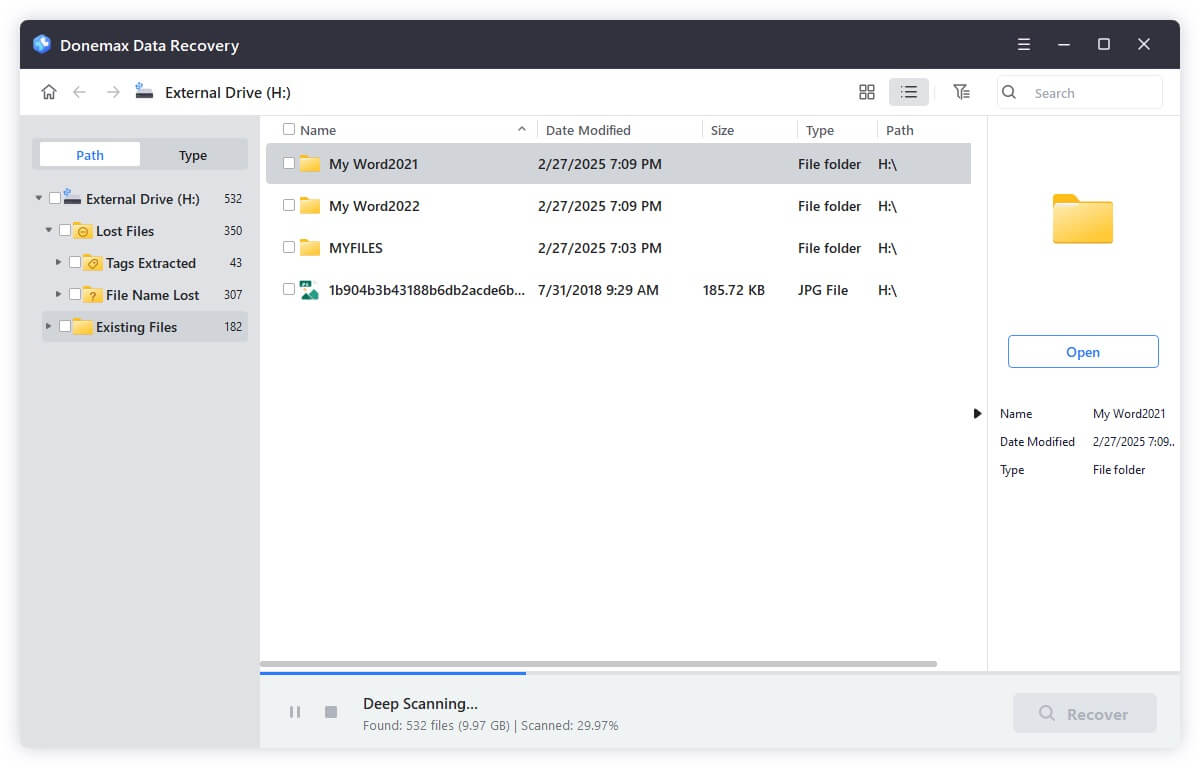
Step 4. Preview and recover what you need. Ensure to save the recovered files to another files to avoid further damaged to the lost data.

Solution 3. Check for Disk Errors
Corrupt sectors can lead to missing files.
- Open This PC.
- Right-click the affected drive > Properties > Tools > Check.
- Windows will scan and fix file system errors.

Alternatively, use Command Prompt:
chkdsk C: /f /r
Replace C: with the drive letter where files were stored. This checks for errors and attempts to recover readable information.
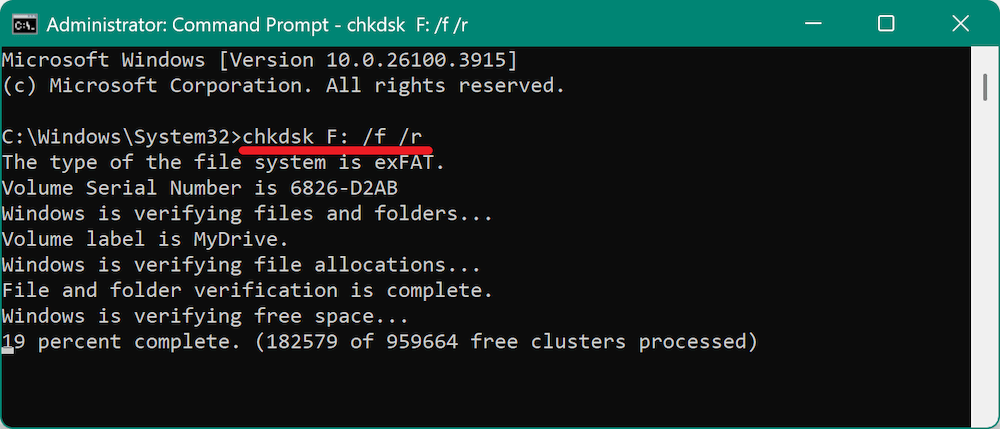
Tips for Better Results
- Stop using the drive immediately after noticing files are missing. Any further write operation may overwrite the deleted files.
- Use Deep Scan if the files aren't found with a basic scan.
- Look by file type, as filenames may be lost or corrupted.
- If you're working with an SSD that has TRIM enabled, recovery is less likely, as TRIM immediately erases deleted data blocks.
Tips to Prevent Files from Disappearing on windows 10 in the Future
To avoid the stress of disappearing files in the future, follow these preventive measures:
Regular Backups
- Enable File History or use Backup and Restore (Windows 7).
- Use cloud services like OneDrive, Google Drive, or Dropbox.
- Back up to external drives weekly or monthly.
Review Update Settings
- Major updates may reset user profiles or move files. Make sure backups are up-to-date before performing any updates.
- After updating, double-check file locations.
Use Antivirus Software
- A robust antivirus or anti-malware tool can detect and block threats that might delete or encrypt files.
- Schedule regular scans.
Be Cautious with System Cleaners
- Tools like Disk Cleanup or third-party cleaners can delete important files if misconfigured.
- Always review what will be deleted before confirming.
Conclusion
Files that vanish from Windows 10 can often be found or recovered—if you know where to look. From simple checks like searching the Recycle Bin or enabling hidden items to more advanced options like system restore or using data recovery software, you have several tools at your disposal.
If your files are critical, act quickly. The sooner you begin recovery efforts, the greater your chance of success. And most importantly, build a habit of regular backups to protect yourself from future losses.
Your files may have disappeared, but with the right steps, they're often not gone for good.


Donemax Data Recovery
One of the best data recovery programs to recover deleted, formatted or lost data from PC, Mac, HDD, SSD, USB drive, SD card, camera, RAID, Sever or other storage devices.
Related Articles
- Feb 11, 2025How to Recover Deleted or Lost FLAC Audio Files? [3 Methods]
- May 29, 2025Recuva Review and Better Alternative
- May 27, 2025How to Recover Deleted or Lost AVI Videos?
- May 20, 2025How to Recover Lost DIR Files from SD Card?
- Jun 28, 2025[3 Methods] Recover Deleted .max File – Complete Recovery Guide for 3ds Max Users
- May 29, 2025Recover Deleted AEP File: Complete Guide to Restore Your Adobe After Effects Projects

Steven
Steven has been a senior writer & editor of Donemax software since 2020. He's a super nerd and can't imagine the life without a computer. Over 6 years of experience of writing technical solutions and software tesing, he is passionate about providing solutions and tips for Windows and Mac users.

Gerhard Chou
In order to effectively solve the problems for our customers, every article and troubleshooting solution published on our website has been strictly tested and practiced. Our editors love researching and using computers and testing software, and are willing to help computer users with their problems
